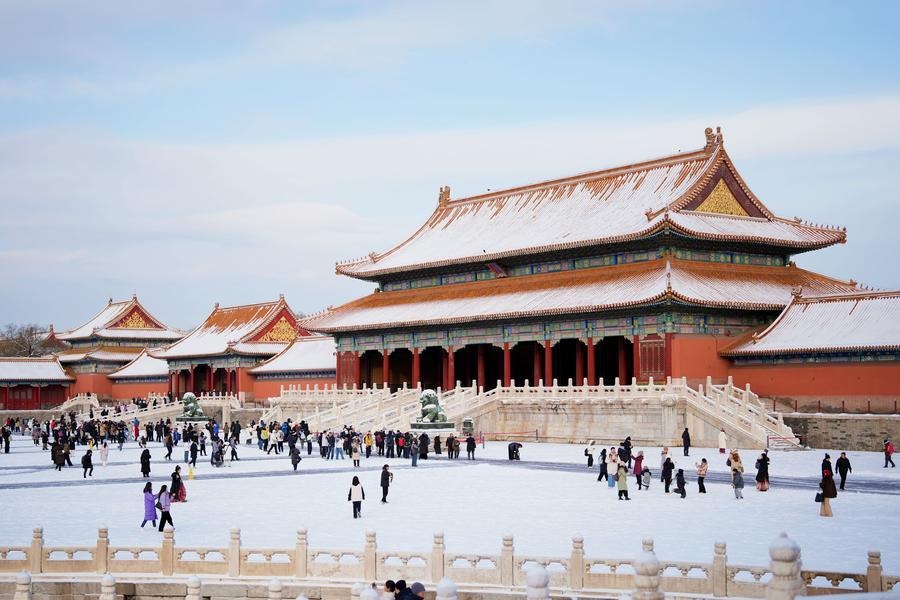Life support
Wetlands are critically important ecosystems whose protection and restoration must be stepped up


Editor's note: The world has undergone many changes and shocks in recent years. Enhanced dialogue between scholars from China and overseas is needed to build mutual understanding on many problems the world faces. For this purpose, the China Watch Institute of China Daily and the National Institute for Global Strategy, Chinese Academy of Social Sciences, jointly present this special column: The Global Strategy Dialogue, in which experts from China and abroad will offer insightful views, analysis and fresh perspectives on long-term strategic issues of global importance.
Celebrated each year on Feb 2, World Wetlands Day is an annual moment to cherish the role wetlands play in people's lives, neighborhoods and societies. It is also a time to take stock of the progress being made in stopping the decline of wetlands and to discuss what more can be done to protect and restore these areas that play a critical role in climate mitigation and adaptation.
Wetlands comprise a wide variety of wet land and water areas including, for example, lakes, rivers, floodplains, marshes, swamps, lagoons and peatlands. They also include human-made wet areas such as rice paddies, fishponds and salt pans. Wetlands are often phenomenal buffers able to store large amounts of floodwaters and with that protect other areas from flooding. They are also recognized as mega-stores of biodiversity, being the habitats of a great variety of plants, animals and other living organisms, and providers of a wealth of food, such as fish and rice, and building materials, such as reeds and clay. Furthermore, wetland ecosystems play a crucial role in maintaining water quality, supporting biodiversity, mitigating and adapting to climate change, and providing livelihoods for millions of people worldwide.
Unfortunately, their valuable contributions to societies and economies have often been ignored. As a result, wetlands have been drained and converted into agricultural, industrial or urban land for economic development. Over the past 50 years, more than one-third of all wetlands globally have been lost due to land conversion, pollution or over-extraction of resources. To combat wetland loss worldwide, governments from around the world established an international treaty — the Ramsar Convention — which came into force in 1975.
China is playing a leading role in wetland conservation and it is the current chair of the Ramsar Convention. China has adopted an ambitious 2022-30 national plan to implement its new wetlands legislation. This legislation, unique in the world, shows that China is a key player in the global effort to address climate change through the preservation and restoration of wetlands.
Building on international and national efforts, the key for operationalizing wetland conservation and restoration in China today lies in mobilizing provincial administrations, local authorities and citizens. To do so requires defining attractive and tailored solutions that reinforce sustainable economic development through wetland conservation and restoration. A balance between development and wetland conservation is possible and is demonstrated by the 34-hectare Qunli Stormwater Wetland Park in Harbin, Heilongjiang province. This urban wetland doubles as a green public space and a collector of stormwater. While serving to protect against flooding, it also provides a place for residents to enjoy their leisure time. Throughout the world, similar approaches are being implemented. Many of these build on the sponge city urban development model that was initially developed in China in the early 2000s. Larger wetlands outside of urban areas can also play a critical role in reducing flooding. To enhance their role, a new approach called room for the river has been adopted. In this approach, floodplain wetlands adjacent to rivers are restored and temporarily used to hold floodwaters during extreme river discharge periods. Pioneered in the Netherlands, the practice is now more broadly implemented worldwide as it is proving to be a very cost-effective way to reduce flood damages. As China will be hit more frequently by stronger typhoons leading to costly flooding, applying the room for the river approach and restoring floodplain wetlands could well be a critical part of its adaptation to climate change.
Avoiding further wetland loss will also be critical for biodiversity conservation and reducing greenhouse gas emissions. Although healthy wetlands act as both sources and sinks of greenhouse gases, draining wetlands causes a significant release of carbon-dioxide and methane — a powerful greenhouse gas driving climate change. Restoring wetlands, on the other hand, can help fix carbon, reduce greenhouse gas emissions and be part of climate mitigation action. For man-made wetlands, such as rice paddies, changing the water regime during the cultivation period could slash methane emissions without reducing crop yield. To take actions, such as a change in land management, however, local farmers need to be provided with guidance and stimulus to make the switch.
A part of such stimulus could come from farmers being allowed to sell the carbon emissions they have avoided through changing their practices. This new source of income is likely to become a critical element for conserving and restoring wetlands around the world. To scale this up, however, major efforts are needed to establish effective legislation and instruments to ensure high-quality carbon off-sets are produced and traded in both regulated and voluntary carbon markets. The development of dedicated carbon registries and trading platforms, through which wetland carbon credits can be traded, will prove to be vital for providing wetlands a lifeline.
As we celebrate World Wetlands Day, it is paramount for governments and communities at all levels to seize the opportunity to step up and initiate practical action for the preservation and restoration of wetlands. By doing so, we safeguard not only the rich biodiversity these ecosystems hold but also enhance the use of the services they provide which benefit people, societies and economies around the world.
The author is the executive director of Swiss-based ARCOWA and a former executive director of the International Water Association. The author contributed this article to China Watch, a think tank powered by China Daily.
The views do not necessarily reflect those of China Daily.
Contact the editor at editor@chinawatch.cn































